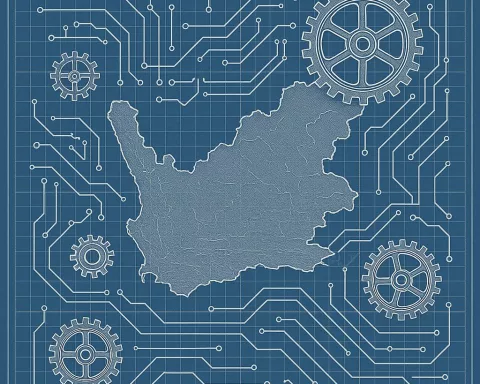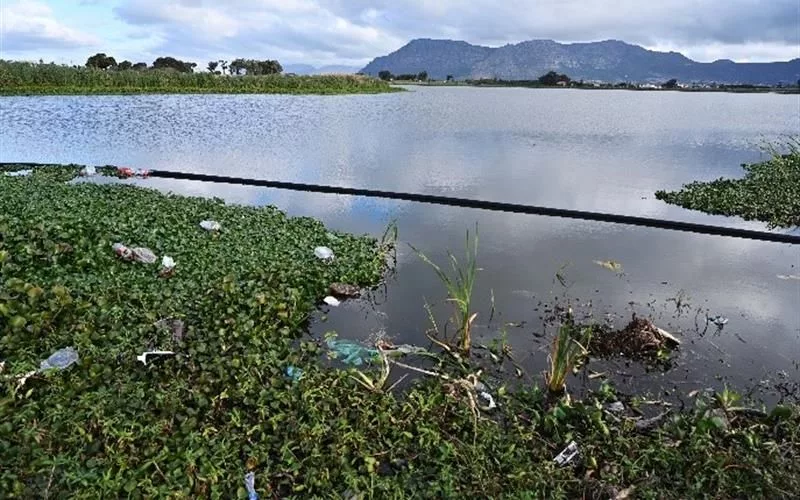The Presidency plays a crucial role in South Africa’s leadership, implementing evidence-based decisions and achieving government priorities. Despite challenges, the presidency is committed to accelerating the country’s growth through strategic collaborations. South Africa remains prominent in the global arena thanks to the leadership and spirit of Nelson Mandela’s great nation. Covid-19 impacted South Africa’s economy, but the government’s strategic initiatives, including the Economic Reconstruction and Recovery Plan, led to employment figures exceeding pre-pandemic levels. The Presidency is dedicated to eliminating poverty, unemployment, and inequality through initiatives like the Presidential Employment Stimulus and the Presidential Youth Employment Intervention.
The Leadership Era of South Africa: Insights into the 2024/25 Presidential Budget Vote
Discover the important role of the Presidency in South Africa’s leadership, particularly in implementing evidence-based decisions and achieving government priorities. The presidency remains committed to accelerating the country’s growth through strategic collaborations, despite the challenges ahead. Through its efforts, South Africa continues to cement its position in the global sphere, a testament to robust leadership and the spirit of Nelson Mandela’s great nation.
The Leadership Role in a Historic Setting
In periods of significant historical and sociopolitical movements, emotions of keen interest and apprehension often arise. One such period that exemplifies the dynamic South African narrative was the month between 30th May and 30th June 2024. During this time, the nation appeared to be catapulted onto a stage akin to the one outlined by famed British statesman Joseph Chamberlain. Under President Cyril Ramaphosa’s guidance, the African National Congress displayed a leadership style that put South Africa’s interests first. This leadership and strategic decision-making remained unharmed, enabling South Africa to maintain a prominent position in the global arena.
The Influence of the Presidency
Central to this leadership role is the Presidency. This department, positioned at the pinnacle of the administration, had the crucial task of assisting the President and the Deputy President in fulfilling the government’s priorities. The well-coordinated administration enabled the South African government to achieve noteworthy performance outcomes. Consequently, the Presidency’s function in finalizing the outstanding work of the 6th Administration and implementing the 7th Administration’s priorities became increasingly critical.
In the 2024/25 fiscal year, the Presidency received a budget of R612 million, marginally lower than the previous year. Despite this monetary constraint, the Presidency remained steadfast in its dedication to providing essential support to the President and his Executive.
The Approach to Data-Driven Decisions
In the age of data-oriented decision making, the Presidency emphasized the importance of evidence-based decisions across the government. This mindset was evident in the successful passing of the Public Service Amendment Bill and the Public Administration Management Amendment Bill by the 6th Parliament. These significant legislative changes improved the professionalism, efficiency, and responsiveness of public service and administration in South Africa. In alignment with President Ramaphosa’s vision, these reforms aimed to build a professional, efficient, and ethical public service, a key priority in the Medium Term Development Plan.
Local Government Reforms and the Impact of Covid-19
Proposed local government changes were also on the horizon, with the Presidency focusing on implementing the district development model. This model advocated for a One Government, One-Plan approach, ensuring that communities had access to dependable and high-quality services.
The year 2020 will forever be engraved in our memories due to the Covid-19 pandemic and its impact on the global economy and job market. South Africa was no exception, with the economy plummeting to 2008 levels. However, the government, in collaboration with business and labor, formulated and executed the Economic Reconstruction and Recovery Plan. This strategic initiative led to employment figures exceeding pre-pandemic levels, with the current number of employed individuals in South Africa now standing at 16.7 million.
Striving for Economic Equality
The Presidency’s strategic objective to eliminate poverty, unemployment, and inequality led to the development of the Presidential Employment Stimulus. This initiative, spanning from October 2020 to March 2024, surpassed its targets, generating over 2 million job opportunities, with youth and women being the primary beneficiaries.
In addition, the Presidential Youth Employment Intervention was launched, leveraging technology to close accessibility gaps. Through initiatives such as the SAYouth.mobi platform, young South Africans could remotely access new opportunities.
The Road Ahead
Despite the enormity of the tasks ahead and the limited resources, the Presidency remained dedicated to accelerating the country’s growth through strategic collaborations. It is through this collective effort and unwavering commitment that South Africa continues to cement its position in the global sphere, a testament to robust leadership and the spirit of Nelson Mandela’s great nation.
1. What is the role of the Presidency in South Africa’s leadership?
The Presidency plays a crucial role in South Africa’s leadership, particularly in implementing evidence-based decisions and achieving government priorities. It assists the President and the Deputy President in fulfilling the government’s priorities and remains dedicated to accelerating the country’s growth through strategic collaborations.
2. How did Covid-19 impact South Africa’s economy?
The Covid-19 pandemic led to South Africa’s economy plummeting to 2008 levels. However, the government, in collaboration with business and labor, formulated and executed the Economic Reconstruction and Recovery Plan, which led to employment figures exceeding pre-pandemic levels.
3. What initiatives were launched to eliminate poverty, unemployment, and inequality in South Africa?
The Presidency developed the Presidential Employment Stimulus, which generated over 2 million job opportunities, with youth and women being the primary beneficiaries. Additionally, the Presidential Youth Employment Intervention was launched, leveraging technology to close accessibility gaps and providing young South Africans with new opportunities.
4. What is the One Government, One-Plan approach?
The district development model advocated for a One Government, One-Plan approach, ensuring that communities had access to dependable and high-quality services.
5. What was the budget for the Presidency in the 2024/25 fiscal year?
The Presidency received a budget of R612 million, marginally lower than the previous year. Despite this monetary constraint, the Presidency remained steadfast in its dedication to providing essential support to the President and his Executive.
6. What is the vision of President Ramaphosa for South Africa’s public service and administration?
President Ramaphosa’s vision is to build a professional, efficient, and ethical public service, which was reflected in the passing of significant legislative changes to improve the professionalism, efficiency, and responsiveness of public service and administration in South Africa.












